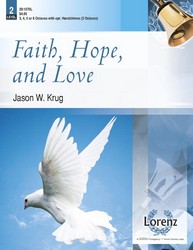- |
User Links
Lord, You Have Been Our Dwelling Place

Lord, Thou hast been our dwelling place Through all the ages of our race (UP/PCUSA)
Tune: ST. CATHERINE (Hemy)Published in 15 hymnals
Printable scores: PDF, MusicXMLAudio files: MIDI
Representative Text
1 Lord, thou hast been our dwelling place
through all the ages of our race;
before the mountains had their birth,
or ever thou hadst formed the earth,
from everlasting thou art God,
to everlasting our abode.
2 O teach thou us to count our days,
and set our hearts on wisdom’s ways;
turn, Lord, to us in our distress
in pity now thy servants bless;
let mercy’s dawn dispel our night,
and all our day with joy be bright.
3 O send the day of joy and light,
for long has been our sorrow’s night;
afflicted through the weary years,
we wait until thy help appears;
from age to age with us abide;
in us let God be glorified.
4 So let there be on us bestowed
the beauty of the Lord our God;
the work accomplished by our hand
establish thou, and make it stand;
yea, let our hopeful labor be
established evermore by thee.
Source: Rejoice in the Lord #114
Text Information
| First Line: | Lord, Thou hast been our dwelling place Through all the ages of our race (UP/PCUSA) |
| Title: | Lord, You Have Been Our Dwelling Place |
| Meter: | 8.8.8.8.8.8 |
| Language: | English |
| Copyright: | Public Domain |
Notes
An appeal for God's wisdom and favor upon the sad state of humankind as sinners and mortals.
Scripture References:
st. 1 = vv. 1-2
st. 2 = vv. 3-6
st. 3 = vv. 7-9
st. 4 = vv. 10-11
st. 5 = vv. 12-15
st. 6 = vv. 16-17
Psalm 90 opens Book IV of the Psalms. No other psalm expresses so poignantly our melancholy state as sinful mortals before the face of a holy and eternal God. Yet the psalmist expresses no defiance. Honesty acknowledges guilt, and faith knows God's unfailing love. To that love we can appeal for mercies that bring joy and for blessings that make our work fruitful.
The psalm opens by addressing the everlasting God as humanity's security and rest through all generations (st. 1) and quickly moves to contrast God's eternity with the shortness of the human lifespan (st. 2). God knows all our sins, and we suffer God's displeasure because of them (st. 3). We live perhaps seventy or eighty years; yet even so long a life brings no relief from sorrow and no escape from death (st. 4). The psalmist asks God to grant wisdom to us sinners and to have pity and mercy on us so that we may yet know joy (st. 5). He continues with a request that God reveal his glory to us and our children by showing favor to us and blessing our efforts in the LORD's service (st. 6).
The versification is a 1985 revision by Helen Otte (PHH 17) of the texts found at 245 and 246 of the 1912 Psalter. Another setting of Psalm 90 is at 170.
Liturgical Use:
Traditionally for Old/New Year services; funerals; many other occasions in Christian worship.
--Psalter Hymnal Handbook, 1988
Tune
ST. CATHERINE (Hemy)ST. CHRYSOSTOM (Barnby)
GOTTLOB, ES GEHT NUNMEHR ZU ENDE
Various forms of GOTTLOB are found in a number of collections of old German melodies. One form of the tune appeared in Johann G. Wagner's Sammlung alter und neuer (1742) with the burial hymn "Gottlob, es geht nunmehr zum Ende" ("Thanks Be to God; My End Is Near Me"). Although only the first line of…


 My Starred Hymns
My Starred Hymns






